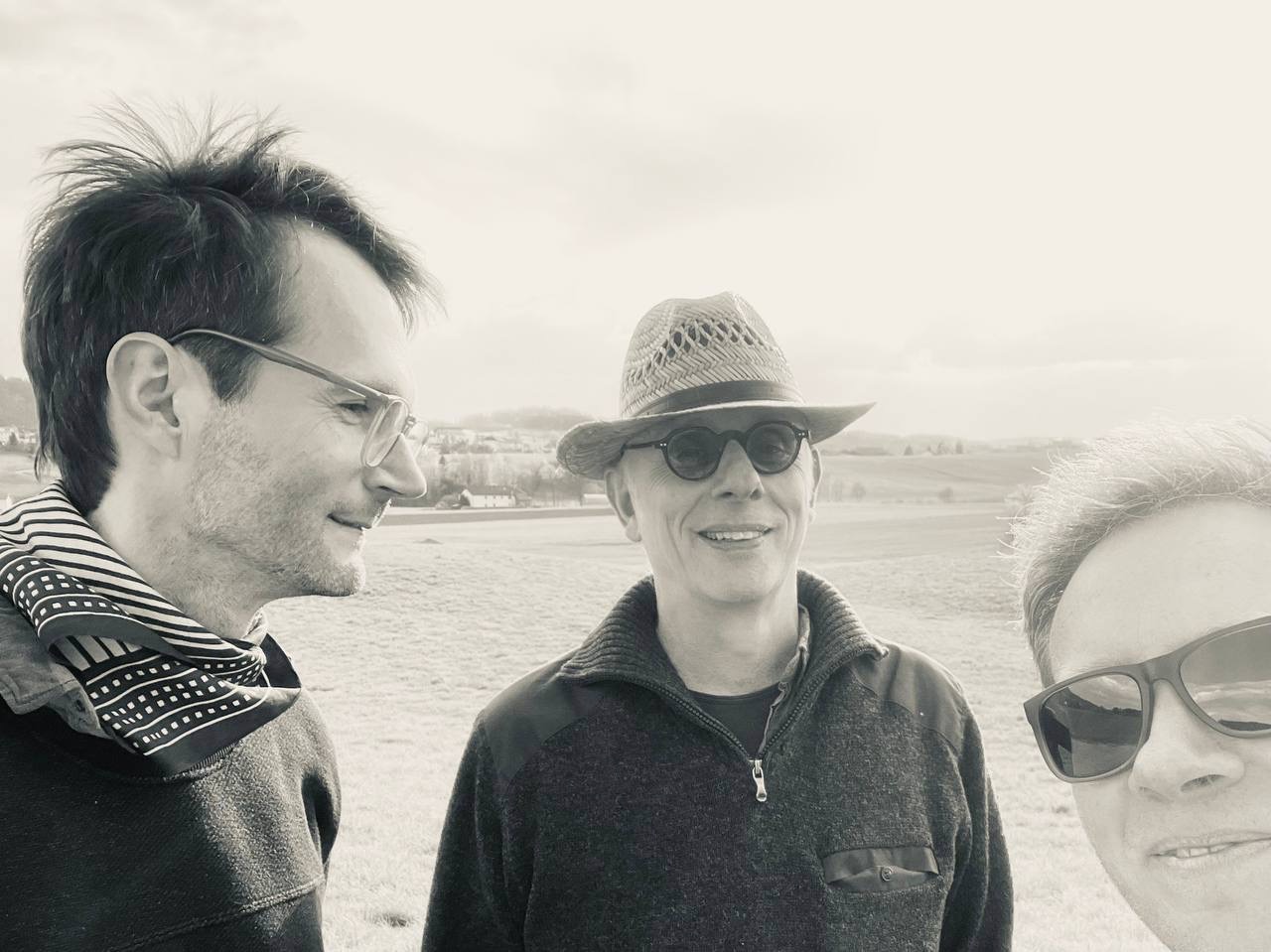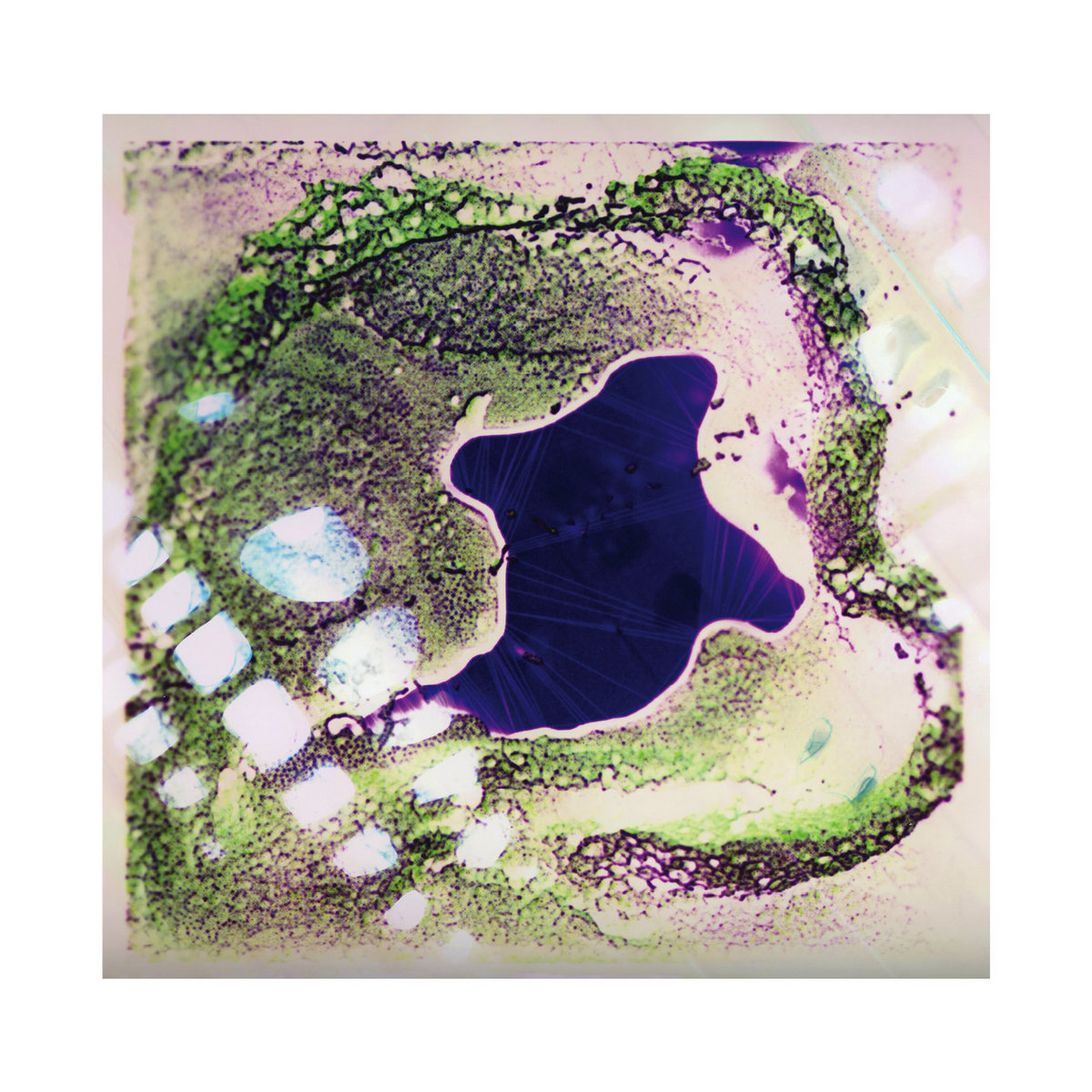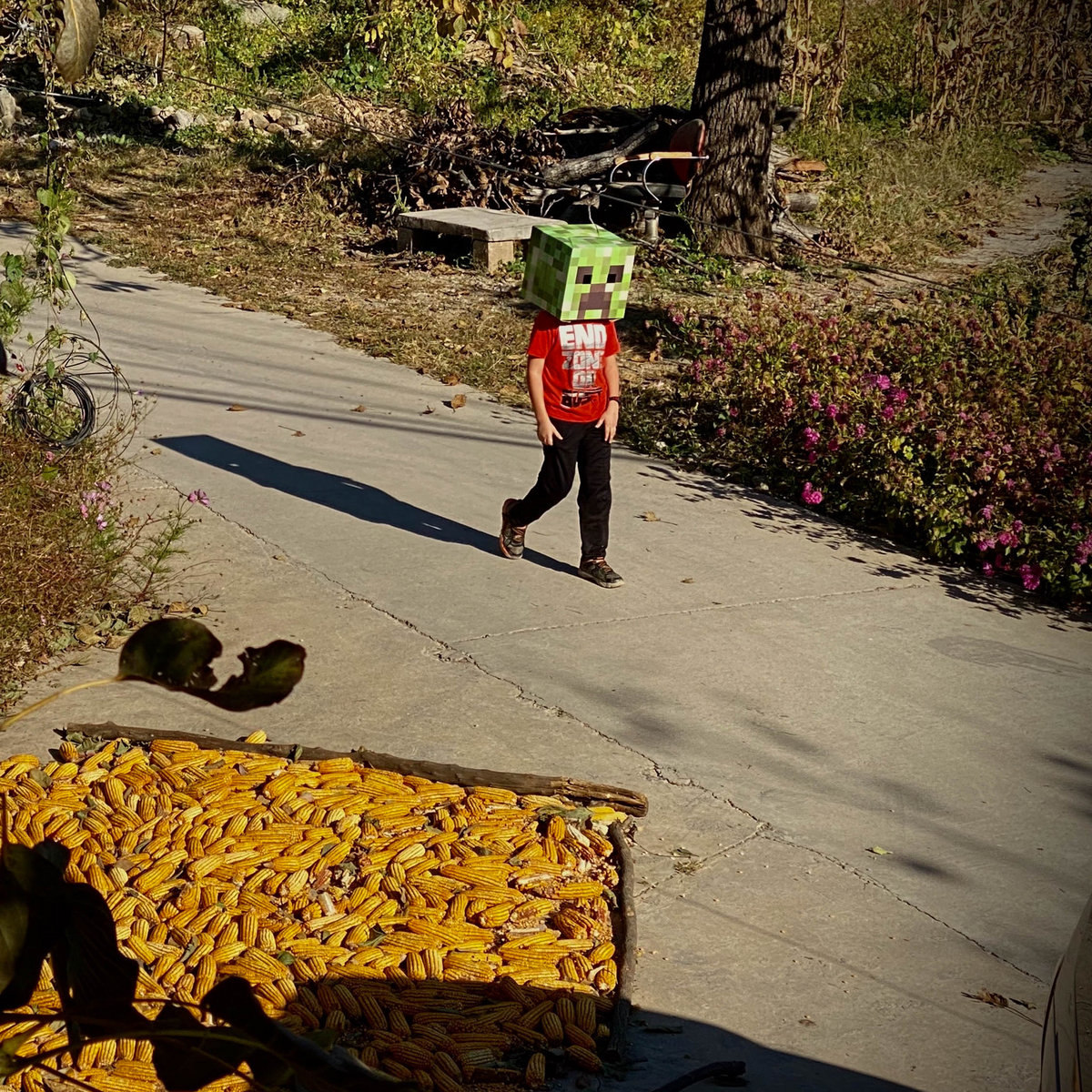
Ohlmeier /Khroustaliov /Fischerlehner
Lothar Ohlmeier - bass clarinet
Isambard Khroustaliov - modular synthesizer & computer
Rudi Fischerlehner - drums
Discography
"In The Gloaming", Not Applicable 2024, bandcamp
"Hypertide over Kiribati", Not Applicable 2019, bandcamp
In the Gloaming
"The
music reflects an intimate and highly nuanced, conversational
mode, a democratic, three-way musical exchange of ideas and deep
listening."
Salt Peanuts
"From
the beginning In the Gloaming is a work of intuition, and the
interplay between the three musicians is something special."
Aural Aggravation
"...
a trio who offer new insights, a world away from any defined
genre."
Marlbank
"It
makes you think, but also makes you feel — and that can only be
a good thing."
Freq
A conversation between friends unfolds as the day fades. No one gets up to turn the lights on, instead, they revel in the spell twilight weaves and the quieting world around them. Echos and remains of the day are filtered through this new state of being; senses on edge, wits sharpened as what is visible recedes. The surroundings that had once seemed so absolute, rigid and certain dissolve and unravel in a flow of allusions and enquiry. Thoughts and actions, adrift once more, surf the infinite flux of space and time.

Hypertide over Kiribati
"Sound truly unlike anything else."[Kris Needs, Electronic Sound]
"A
formidable interlocking of ideas, resulting in a type of
improvised post-jazz bestowed with a futuristic trim."
[Mat Smith, Further]
"Dieser
Abschlusstack klingt wie der immerwährend gesendete Morseruf
nach der Apokalypse, mit all seinen Störgeräuschen. Aber auch
dieser verstummt plötzlich."
[freiStil]
“Describe in single words only the good things that come into your mind ...”
The hypertide is real, so is Kiribati. In our collective
somnabulism we've managed to create a situation where a low lying
atoll in the Pacific will soon be flooded by the polar ice we've
managed to melt in part by uploading photos to Instagram. A real
life desert island paradise submereged by a virtual tide of
holiday selfies.
The effects of the hypertide are however neither limited in
dimensionality, nor assuaged by the imminent dissapearance of
Kiribati. The hypertide will rage onwards drowning both the real
and the virtual in what the philosopher and computer scientist
Jaron Lanier has described as 'a vast pointilist spew' of platform
sterilised media that has been robbed of any history or culture
through which it might once have had meaning.
This flood of meaninglessness that is perpetuated by the statistics of likes, shares and playcounts on social media, is perhaps most heavily courted by the world of music. Beseiged by the 'wisdom of the crowd' that promised to make sense of digital music's post-Napster / ‘all music is free on the internet' ubiquity, music culture's diversity is now being strangled by the interests of venture capital, leaving many of its most idiosyncratic practitioners unable to make a living from their work.
And yet the relationship between music and computation once had a very different prospect. Fuelled by the experiments and visions of the 20th century, from jazz's exploration of the creative possibilities of improvisation to the lyrical use of emerging electric instruments and recording devices in pop and dance music production and the formal and syntactic exploration of early computers by classically trained composers in search of new sonorities, their once existed a wild optimism surrounding the use of new technology in music.Hypertide Over Kiribati is our own personal search and invocation of a version of this optimism in the face of the anonymising, anodysing force of platform capitalism in music. An afront to a dull thud of nothingness that threatens to trivialise, divide and silence that legacy, the music recorded here attempts to seek out and explore alternate realities for man-machine symbiosis in music making, with the hope that it will inspire others to search and continue to search for new horizons.
